American military studies human behavior
 The Department of Defense of the USA makes experiments on social networks users. Defense Advanced Research Projects Agency provides monitoring of microblog service and Internet users‘ posts on such large social networks as Facebook, Twitter, Pinterest and Kickstarter.
The Department of Defense of the USA makes experiments on social networks users. Defense Advanced Research Projects Agency provides monitoring of microblog service and Internet users‘ posts on such large social networks as Facebook, Twitter, Pinterest and Kickstarter.
The Pentagon invests large amount of money for carrying out experiments which are connected with users‘ mood and its manipulation. Technological Department of Defence and scientists of university hold the Pentagon project, called Social Media in Strategic Communication. It provides monitoring of Twitter microblog service and Internet users‘ posts on large social networks.
Read moreThe Secret Service wants software that detects social media sarcasm.
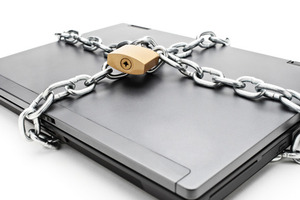 USA Secret Service reported that wants to buy analytical computer programs that are able to synthesize data from social media and provide this information in a visual form.
USA Secret Service reported that wants to buy analytical computer programs that are able to synthesize data from social media and provide this information in a visual form.
The orders ask for a long list of specific tools, including the ability to identify social media influencers, analyze data streams in real time, access old Twitter data and use heat maps. And it wants the software to be compatible with Internet Explorer 8. Then there's the request to sift through the heaps of snark on Twitter and other social media services: "Ability to detect sarcasm and false positives," the request reads.
Read moreRussian official’s threat to ban Twitter spurs fast backlash
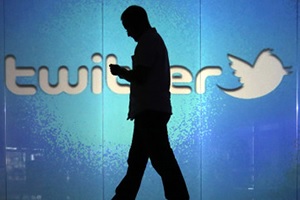 Comments on Friday by a top Russian telecoms official, suggesting that the country might soon block access to Twitter, met with a swift wave of condemnation — including from other government officials — providing a rare window into differences of opinion inside the Kremlin over how best to censor voices of dissent.
Comments on Friday by a top Russian telecoms official, suggesting that the country might soon block access to Twitter, met with a swift wave of condemnation — including from other government officials — providing a rare window into differences of opinion inside the Kremlin over how best to censor voices of dissent.
In an interview with a local newspaper Friday, Maxim Ksenzov, deputy head of the government’s telecommunications watchdog, Roskomnadzor, called Twitter a “political” tool that undermines the state’s authority. “We can block Twitter or Facebook tomorrow for several minutes,” Ksenzov said. “We do not see any risks in that.”
Read moreUS State Department used Twitter-like online service to undermine Cuba’s government
 The US government operated a Twitter-like social network to sow political discontent among Cubans.
The US government operated a Twitter-like social network to sow political discontent among Cubans.
The Associated Press revealed last week that the US government's Agency for International Development (USAID) established and operated a Twitter-like social network in Cuba over a period of two years starting in 2009. The main purpose of the program was to undermining the country's communist government.
Tomorrow, the head of USAID, Rajiv Shah will take a stand before a Senate subcommittee of foreign operations and State Department budget to answer some difficult questions about the program.
Snowden’s effect or now Twitter wants to “spy” on SMS and calls
 Mobile apps' “appetite” grows for users' private data. Attentive owners of Android may have noticed Twitter’s update request to gain access to SMS and phone status.
Mobile apps' “appetite” grows for users' private data. Attentive owners of Android may have noticed Twitter’s update request to gain access to SMS and phone status.
Previously similar attempts to access SMS have been already observed by Facebook, Viber, Hangouts and Telegram. They would explain such a move with making it easier for users to enter the activation code.
But it gets more difficult to explain this strange desire to access the status of you phone calls. Why would Twitter what to know when and who’s calling?
Read moreTwitter Test Shows ‘Nearby’ Tweets
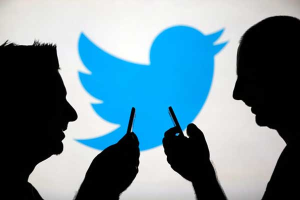 Twitter has an eye on your location — and is testing ways to share it with other nearby users. The short-messaging service appears to be testing a new timeline for its mobile app, called “Nearby.” It shows recent nearby tweets, whether you follow the tweeter or not.
Twitter has an eye on your location — and is testing ways to share it with other nearby users. The short-messaging service appears to be testing a new timeline for its mobile app, called “Nearby.” It shows recent nearby tweets, whether you follow the tweeter or not.
The “Nearby” timeline has appeared occasionally in recent days on the phones of users who allow Twitter to see and use their location.
The apparent test could be part of an effort to prompt more users to share their location. That would make the network more locally relevant, in the manner of Foursquare. It also would allow Twitter to offer advertisers more precise targeting capabilities.
Read more2 million passwords for Facebook, Twitter and Google posted online
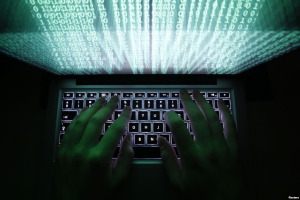 Over 2 million passwords for popular social networking sites such as Facebook and Twitter, as well as Google and Yahoo accounts have been stolen and posted online, with Russian social networks VKontakte and Odnoklassniki also featuring on the hitlist.
Over 2 million passwords for popular social networking sites such as Facebook and Twitter, as well as Google and Yahoo accounts have been stolen and posted online, with Russian social networks VKontakte and Odnoklassniki also featuring on the hitlist.
Internet security firm Trustwave exposed the extensive data hoard, saying in its blog that the responsible botnet – dubbed Pony – had harvested information from thousands of vulnerable computers on a global scale.
The information included login credentials, email addresses and passwords. In total, 1,580,000 website login credentials were stolen, alongside 320,000 email and 41,000 FTP accounts.
Read moreTweets can become court evidence
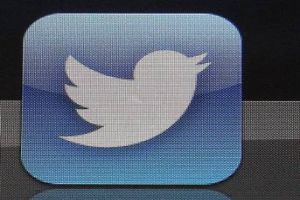 Defence barrister Mark McDonald said that messages written online are being used increasingly by the Crown Prosecution Service and police. His comments come after an American teenager had a manslaughter charge upgraded to murder, partly because he had boasted about speeding on Twitter, according to prosecutors.
Defence barrister Mark McDonald said that messages written online are being used increasingly by the Crown Prosecution Service and police. His comments come after an American teenager had a manslaughter charge upgraded to murder, partly because he had boasted about speeding on Twitter, according to prosecutors.
Mr McDonald told Metro: "There can be naivety, in that people believe they can say things on social media and it won't be used against them. "Social media is also used as a tool by people in the Crown Prosecution Service or the police; for instance, they may ask someone alleging rape to send a message to the person they are accusing asking why they did it. Their reply can then be used in evidence."
Read moreTwitter: 70% of requests for personal data come from the U.S.
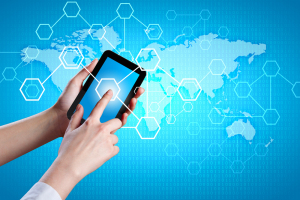 U.S. authorities are more likely to ask for personal information of a user's microblogging service Twitter. Over the past six months, the U.S. government sent 902 to the company requesting a statement. Twitter just received 1176 requests.
U.S. authorities are more likely to ask for personal information of a user's microblogging service Twitter. Over the past six months, the U.S. government sent 902 to the company requesting a statement. Twitter just received 1176 requests.
Thus, in the United States accounts for more than 70% of all claims, the report said. In second place at the request of information is Japan (87 requests), and the third - the United Kingdom (26 requests). A large number of requests from Turkey or Brazil have been reported to the company. In this case, Twitter is rarely receives requests to remove a certain message. In just six months, the company received 21 such a request, of which only two were initiated by the U.S. authorities.
Read moreAxarhöfði 14,
110 Reykjavik, Iceland















